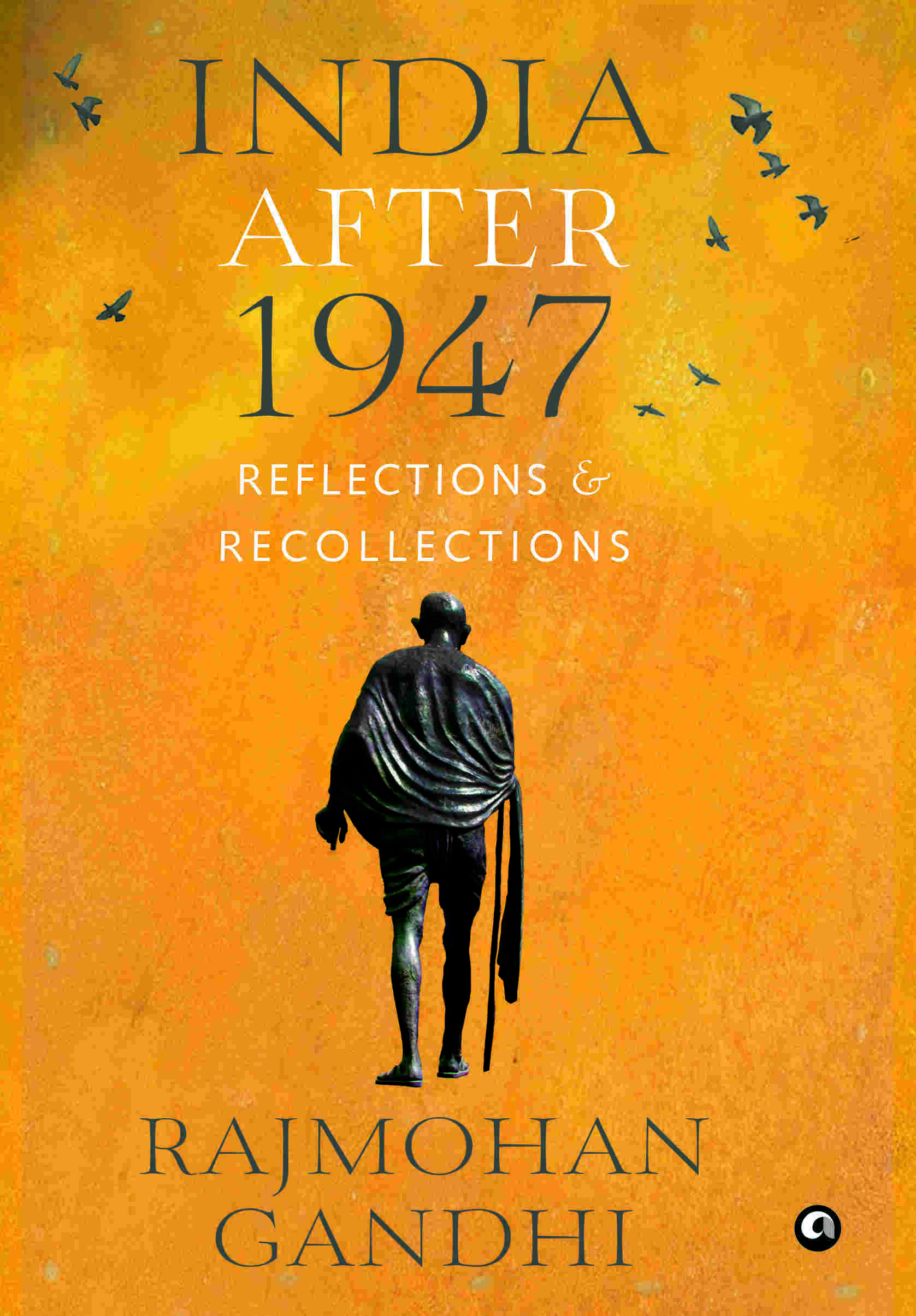Shield of greatness
As the lofty ideals of Indian democracy have come under attack over the past few years, Rajmohan Gandhi, in his book India After 1947, examines how citizens can inclusively keep the fading vibrancy intact. Excerpts:

How much of the earth's news reaches heaven is hard to tell, but assuming that Gandhi knows of attacks hurled at him from Haridwar and elsewhere in India, I picture him smiling benevolently at the attackers.
Two days after he was killed, Sarojini Naidu, the passionate poet who had marched at Gandhi's side for decades, pleaded with him over All India Radio: 'My father, do not rest! Do not allow us to rest. Keep us to our pledge.' That was seventy plus years ago, i.e., more than two generations ago. We should release him now. Gandhi has done his bit. Let him have a rest.
If we still want Gandhi to solve our problems, or to blame him when they are not solved, we are only belittling ourselves. Not that we can injure him. He is safe from harm where he is. As are Nehru, Patel, Ambedkar, Subhas, and all other departed heroes.
It is not difficult to identify the real targets when, on the surface, Gandhi is attacked. The idea that non-Hindus should enjoy rights is one such target. That Christians and Muslims should enjoy equal rights is for some an unbearable thought. Which also means that it is the Constitution that is being hated and defied and sought to be silenced.
Some seem offended by the very presence—the mere existence—of Muslims and Christians, and of Sikhs who demur when they are called Hindus. Rants about 'conversion' are never far when Gandhi is being condemned. While deploring proselytization, Gandhi always defended individual choice. His opposition to coercion in thought, speech, or belief sticks in the throats of bullies.
Rage at the long-absent Gandhi is often only a camouflage for attacks on fundamental rights. While Gandhi cannot be hurt by any 'debunking', damage can be inflicted on liberty, equality, and friendship.
And although India possesses numerous scholars capable of sifting fair criticism of Gandhi from falsehoods thrown about him, other supporters of liberty, equality, and friendship, bombarded with half-truths and falsehoods but unable to fact-check, are entitled to know where Gandhi stood on some key points. I will therefore ask three precise questions, raised from three very different quarters:
• Didn't ahimsa-lover Gandhi ask Hindus to let Muslims kill them and their families?
• Wasn't Gandhi lukewarm if not hostile to the idea of doing away with caste?
• How keen was he, anyway, to fight Hindu supremacy?
(Excerpted with permission from Rajmohan Gandhi's 'India After 1947'; published by Aleph Book Company)



